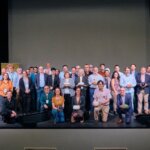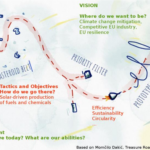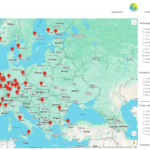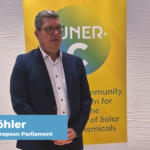SUNER-C concludes after three years dedicated to unlocking the renewable energy future
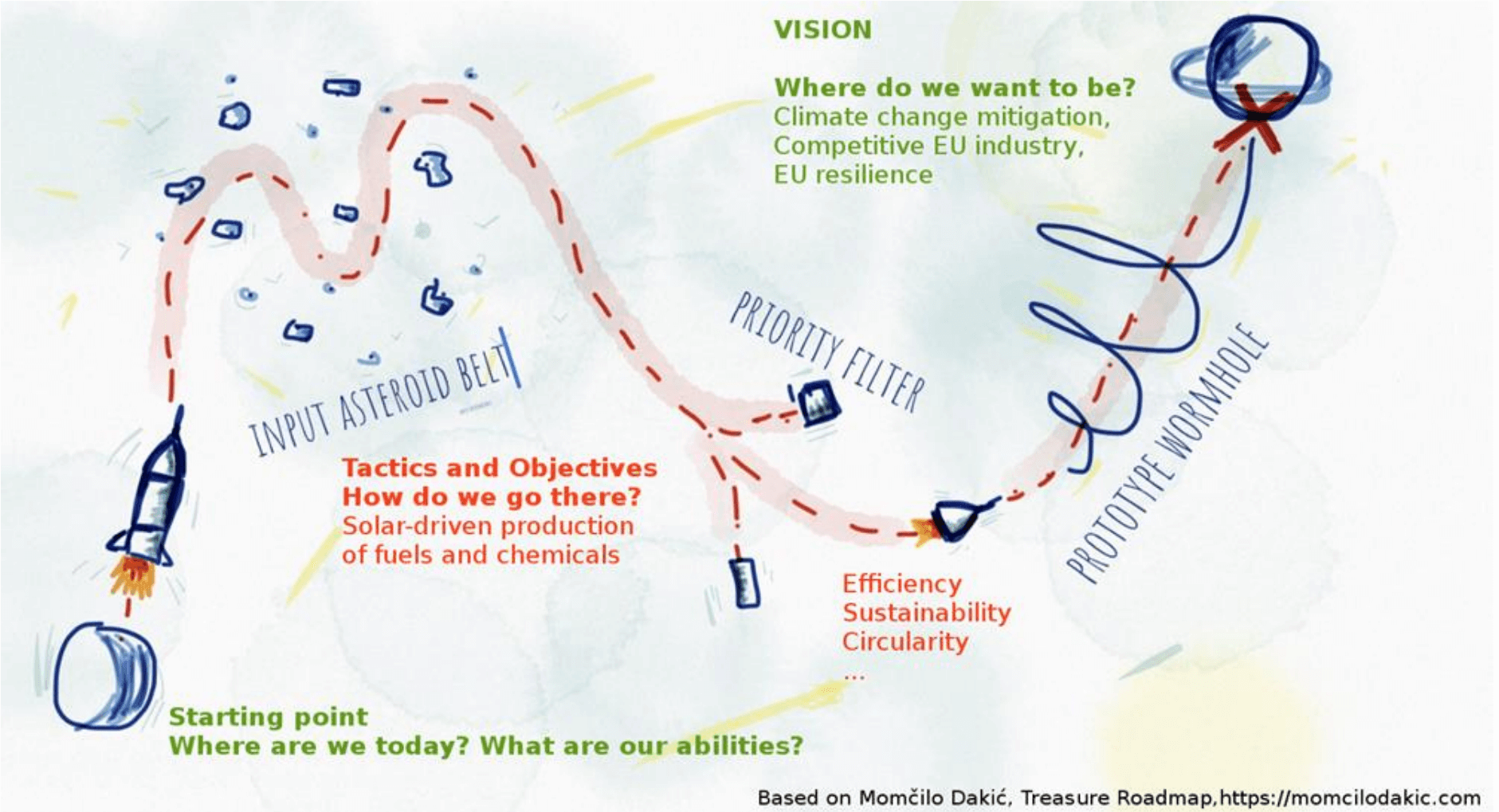
03 07 2025
Category: Main page, Science news
Brussels, July 3, 2025 – Launched in 2022, the European project SUNER-C started with a clear mission: to grow a community and eco-system dedicated to solar fuels and chemicals in Europe.
Over the course of this Coordination and Support Action, partners came together to define what the future of this field should look like and how to bring it to life: drafting strategic documents, developing practical tools, organizing workshops to gather input and foster collaboration (including at global level) and preparing pathways to support the eco-system and the field beyond the SUNER-C project to unlock its full potential and contribute to the EU carbon neutrality objectives.
One of SUNER-C’s outcomes has been the development of the Technological Roadmap, which identifies short-, medium-, and long-term critical milestones toward the broad implementation of solar fuels and chemicals in society. The roadmap, prepared under the leadership of Prof. Joanna Kargul (Centre of New Technologies, University of Warsaw), Dr. Carina Faber (European Innovation Council) and Mr. Théo Alerte (ENGIE), also includes a blueprint for implementation, proposing projects and activities and addressing aspects like financing, exploitation, and societal impact of solar fuels and chemicals technologies.
As Prof. Bert Weckhuysen, SUNER-C coordinator, stated, “We are proud of the many results obtained and happy with the strengthening of our community. Connecting the right stakeholders is key to making our society more sustainable and circular.”
Previously, the team created a Strategic Research and Innovation Agenda (SRIA) that lays out concrete actions for the coming years, aligning technological innovation with climate goals and industrial needs. The SRIA was shaped through an inclusive process, including a major joint workshop that gathered over 140 stakeholders from industry, academia and policy.
Dr. Frédéric Chandezon, SUNER-C deputy coordinator, reflected on the project’s collaborative spirit, saying, “We have fond memories of the exciting in-depth discussions held in Brussels, Paris, Madrid, Ghent, and Utrecht. Our diverse backgrounds have truly enriched the conversations that help drive SUNER-C’s ambitions forward.”
To inspire the next generations, and everyone curious about clean energy, the project developed an open, interactive Educational Platform designed for all audiences, from high school students to industry professionals. In line with this goal, a comprehensive book titled Unlocking the Future of Renewable Energy and Chemistry through Catalysis was developed by SUNER-C contributors, including Vasile Parvulescu, Bert Weckhuysen, Siglinda Perathoner, and Gabriele Centi.
As SUNER-C was coming to a close, the project’s Final Conference included a Policy Dinner at the European Parliament. The event was hosted by MEP Stefan Köhler, who shared public statements available to watch in this video:
The event brought together EU policymakers, researchers and industry representatives to discuss how sustainable fuels and chemicals can contribute to the EU’s Clean Industrial Deal (CID).
Although SUNER-C has officially concluded, Prof. Bert Weckhuysen emphasized: “The spirit and infrastructure SUNER-C built are here to stay. The SUNERGY community, of which SUNER-C was a key driver, will keep connecting experts, sharing insights, and pushing large-scale innovation in solar fuels and chemicals.”
The SUNER-C project has received funding from the European Union’s Horizon Europe research and innovation programme under grant agreement No 101058481.
More information:
SUNER-C is an EU-funded Coordination and Support Action (4M € over 3 years) targeting the next generation of energy carriers to replace fossil-fuels. 29 different EU partners gathered to set up the framework to accelerate the transition of technologies for the generation of solar fuels & chemicals, from the laboratory to large-scale industrial applications.
SUNERGY is an open community advocating for solar fuels and chemicals as the new paradigm for a climate-neutral Europe in 2050. The community consists of a wide-range group of experts from industry, academia and society. SUNERGY aims at becoming a large European Research and Innovation initiative working towards the conversion and storage of renewable energy into fossil-free fuels and chemicals.
Prof. Joanna Kargul, Head of Solar Fuels Laboratory participated and participates in both the SUNER-C and SUNERGY actions leading the development of Technological Roadmap for Solar Fuels and Chemicals and coordinating the activities and output of Technological Working Groups of the SUNERGY Large-scale R&I Initiative.
Media Contact:
Arnau Jordà
Project Communications at ICIQ
ajorda@iciq.es
